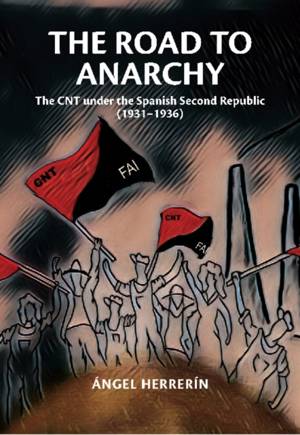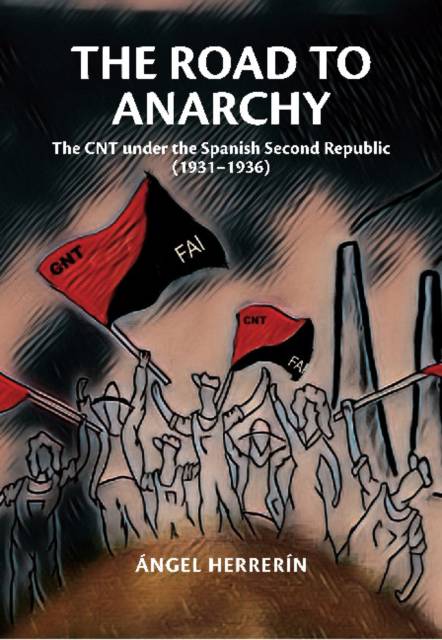
Nos liseuses Vivlio rencontrent actuellement des problèmes de synchronisation. Nous faisons tout notre possible pour résoudre ce problème le plus rapidement possible. Toutes nos excuses pour la gêne occasionnée !
- Retrait gratuit dans votre magasin Club
- 7.000.000 titres dans notre catalogue
- Payer en toute sécurité
- Toujours un magasin près de chez vous
Nos liseuses Vivlio rencontrent actuellement des problèmes de synchronisation. Nous faisons tout notre possible pour résoudre ce problème le plus rapidement possible. Toutes nos excuses pour la gêne occasionnée !
- Retrait gratuit dans votre magasin Club
- 7.000.0000 titres dans notre catalogue
- Payer en toute sécurité
- Toujours un magasin près de chez vous
101,95 €
+ 203 points
Description
The Road to Anarchy is the result of an exhaustive investigation into the anarcho-syndicalist Confederación Nacional del Trabajo (CNT) during the democratic years of the Second Republic. By analysing the course of the CNT in terms of its role in the labour conflict and the internal life and approach of the organisation (its ideology, its practice, its internal conflicts, the role of the individual and the weight of history) this book dismantles the long-held view that the CNT orchestrated three insurrections against the Republic. Key is analysis not only of the violence of the anarchists, but also that of the state. Two crucial themes emerge: the political struggle within the organisation, and its involvement in the revolution of October 1934 and in the events of the spring of 1936. Ángel Herrerín investigates the controversial relations of the anarchists with other political formations, such as the republicans, the socialists, Communists and Catalans, with whom the anarchists fought on the republican side during the Civil War. Special attention is paid to the crucial relationship with the socialist trade unions, the Unión General de Trabajadores (UGT), as this evolved from one of competition for trade-union dominance to the acceptance of anarcho-syndicalist practices by the socialists and collaboration between the two organisations. The book is based on wide-ranging archival research, including the Institute of Social History in Amsterdam, the National Historical Archive in Spain, the Foreign Office Archives in France and other national archives related to the repression of the CNT, such as those of the Army and Civil Guard in Spain. The study of the CNT in this timeframe is long overdue; the last similar study was undertaken by the US Democratic Congressman John Brademas in the 1950s, a renowned scholar of Spains social revolution.
Spécifications
Parties prenantes
- Auteur(s) :
- Editeur:
Contenu
- Nombre de pages :
- 400
- Langue:
- Anglais
- Collection :
Caractéristiques
- EAN:
- 9781789761474
- Date de parution :
- 22-08-21
- Format:
- Livre broché
- Format numérique:
- Trade paperback (VS)
- Dimensions :
- 156 mm x 234 mm
- Poids :
- 444 g







